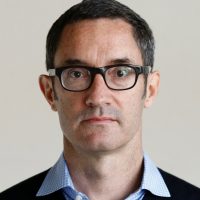AGI News
Noah Barkin, DAAD/AGI Research Fellow

Noah Barkin
German Marshall Fund of the United States
Noah Barkin was a DAAD/AICGS Research Fellow from mid-March to mid-May 2019. Noah Barkin is a senior visiting fellow in the German Marshall Fund's Asia Program based in Berlin. Prior to joining GMF, he was a journalist who had reported from over 20 countries in 25-year career with Reuters, specializing in German and European political and economic issues. He served as Bureau Chief for Germany/Austria/Switzerland and in other senior writing, editing, and management roles in Paris, London, and New York. Noah has written a regular "Inside Europe" column for the New York Times and authored a book on the introduction of the euro. A native Californian, he has a BA in Political Science and French from UC Berkeley and a Master's in International Affairs from Columbia University.
During his fellowship at AICGS, Noah will be focusing on evolving policies toward China in the United States and Europe, exploring potential areas for cooperation and conflict.
AGI is pleased to welcome Noah Barkin as a DAAD/AGI Research Fellow from mid-March to mid-May 2019. He is a Berlin-based journalist who has reported from over 20 countries in 25-year career with Reuters, specializing in German and European political and economic issues. Over the past year, as Special Correspondent for Europe, he has been focusing on the relationship between Europe and China. Prior to that he served as Bureau Chief for Germany/Austria/Switzerland and in other senior writing, editing, and management roles in Paris, London, and New York. Noah has written a regular “Inside Europe” column for the New York Times and authored a book on the introduction of the euro. A native Californian, he has a BA in Political Science and French from UC Berkeley and a Master’s in International Affairs from Columbia University.
During his fellowship at AGI, Noah will be focusing on evolving policies toward China in the United States and Europe, exploring potential areas for cooperation and conflict.
Supported by the DAAD with funds from the Federal Foreign Office (FF).








